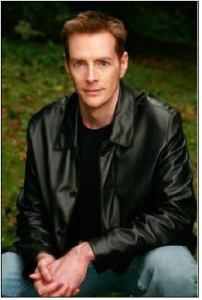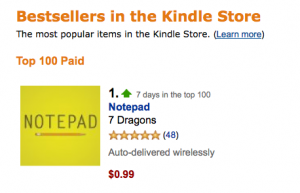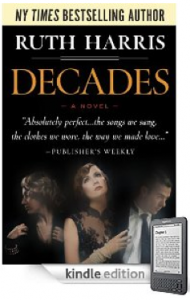By Stephen Windwalker, Publisher of Planet iPad
First, congratulations to several Kindle Nation sponsors who have recently soared into the top 100 in the Kindle Store, and in some cases onto the USA Today bestseller list as well! Here’s where some of our past or current sponsors stand as I write this:
Eisler’s move has been widely hailed as a major development requiring — I’m sorry, there’s just not a pretty way to put this — very large cojones. And I agree, but courageous moves are seldom significant unless they blaze a trail for others. What may be most important about what Eisler has done is that there will soon be plenty more authors of distinction who follow a similar path to bring their previously published and newly published books directly to Kindle readers and other digital platforms, and it will be interesting to see how they go about the process of building fresh connections with readers, absent the usual intermediaries and gatekeepers.
One of these authors of distinction who comes naturally to mind is New York Times bestselling novelist Ruth Harris, whose Husbands and Lovers is today’s Kindle Nation Daily sponsor. Harris has sold millions of print copies of smart, stylish novels that have been translated into 19 languages and selected by the Literary Guild and Book-of-the-Month Club, and she recently brought back Husbands and Lovers, Decades and Love and Money as direct-to-Kindle offerings. Husbands and Lovers jumped from #55,528 to #5,275o on the Kindle Store bestseller list during the past few hours, and the author is priming the pump by offering Decades at a promotional price of just 99 cents. It will be interesting to see how the New York Times plays it when Harris sells enough directly published ebooks to qualify for bestseller lists, as I believe she will. The Times has taken an utterly indefensible, know-nothing stance to keep its bestseller list free of self-published authors, but if the self-published author is a former New York Times bestselling author, will she still be barred entry?
But not everyone is moving away from traditional publishers toward direct publishing. Along comes the amazing Amanda Hocking today — according to this New York Times scoop — to sign a … are you sitting down? … deal for over $2 million with MacMillan’s St. Martin’s Press for her next series, whose working series title is “Watersong.” Hocking, 26, blogged very eloquently on Tuesday about some of the reasons — in addition to the two million obvious ones — she might be interested in a traditional publishing contract. And who can blame her?

But I have to wonder how her ebooks will do if MacMillan and St. Martin’s price them in the $11.99 to $14.99 range which publishers stupidly claim is the right price for newly released ebooks. Currently Hocking has 6 titles among the Kindle Store’s Top 100 bestsellers, but they are all priced between 99 cents and $2.99. Could agency model pricing ruin the Amanda Hocking franchise?
While this is the first ebook-to-traditional publishing contract narrative to ascend to the rarified air of the $2 million advance, there have been a few other cases where authors signed nice contracts after doing very well previously with direct-to-Kindle ebooks. A couple of years ago Boyd Morrison made a big splash when he sold enough copies of his self-published novelThe Ark to crack the Kindle Store bestseller list’s Top 100 and he parlayed it into a multiple-title contract with agency model publisher Simon and Schuster. The Ark was reissued for about three times its original Kindle Store price, although Morrison’s royalty rate is less than it would be if he had published it directly at the more reader-friendly $2.99 price. Not surprisingly, The Ark has created far less buzz the second time around.
Lately it keeps occurring to me that the big traditional corporate publishers are the vanity presses of 2011. Obviously, when an author is offered a deal such as Hocking’s, nobody will blame her for signing on the line. But Morrison’s example suggests there may be plenty of others who sign away their rights for far less than they are worth because of some romantic and outmoded sense of what it means, or used to mean, to land a book deal.
- David Lender‘s Trojan Horse is #47 in the Kindle Store, up from #11,941 prior to its first sponsorship on February 19

- Debbie Mack‘s Least Wanted is #55 and her Identity Crisis is #65 and #139 on the USA Today list (up from #3,374 and #1,048 before their first sponsorship January 18)
- Victorine E. Lieske‘s Not What She Seems is #73 in the Kindle Store, up from #8,000+ before her first sponsorship in September, and was on the USA Today list ealier this month
- And last but most definitely not least, colleague Abhi Sing of Kindle Review and his Seven Dragons team hold the #1 spot on the Kindle Store bestseller list with their magical and revolutionary Notepad app for the Kindle, which is currently featured as the Kindle App of the day here at Kindle Nation!
Eisler’s move has been widely hailed as a major development requiring — I’m sorry, there’s just not a pretty way to put this — very large cojones. And I agree, but courageous moves are seldom significant unless they blaze a trail for others. What may be most important about what Eisler has done is that there will soon be plenty more authors of distinction who follow a similar path to bring their previously published and newly published books directly to Kindle readers and other digital platforms, and it will be interesting to see how they go about the process of building fresh connections with readers, absent the usual intermediaries and gatekeepers.
One of these authors of distinction who comes naturally to mind is New York Times bestselling novelist Ruth Harris, whose Husbands and Lovers is today’s Kindle Nation Daily sponsor. Harris has sold millions of print copies of smart, stylish novels that have been translated into 19 languages and selected by the Literary Guild and Book-of-the-Month Club, and she recently brought back Husbands and Lovers, Decades and Love and Money as direct-to-Kindle offerings. Husbands and Lovers jumped from #55,528 to #5,275o on the Kindle Store bestseller list during the past few hours, and the author is priming the pump by offering Decades at a promotional price of just 99 cents. It will be interesting to see how the New York Times plays it when Harris sells enough directly published ebooks to qualify for bestseller lists, as I believe she will. The Times has taken an utterly indefensible, know-nothing stance to keep its bestseller list free of self-published authors, but if the self-published author is a former New York Times bestselling author, will she still be barred entry?
But not everyone is moving away from traditional publishers toward direct publishing. Along comes the amazing Amanda Hocking today — according to this New York Times scoop — to sign a … are you sitting down? … deal for over $2 million with MacMillan’s St. Martin’s Press for her next series, whose working series title is “Watersong.” Hocking, 26, blogged very eloquently on Tuesday about some of the reasons — in addition to the two million obvious ones — she might be interested in a traditional publishing contract. And who can blame her?

But I have to wonder how her ebooks will do if MacMillan and St. Martin’s price them in the $11.99 to $14.99 range which publishers stupidly claim is the right price for newly released ebooks. Currently Hocking has 6 titles among the Kindle Store’s Top 100 bestsellers, but they are all priced between 99 cents and $2.99. Could agency model pricing ruin the Amanda Hocking franchise?
While this is the first ebook-to-traditional publishing contract narrative to ascend to the rarified air of the $2 million advance, there have been a few other cases where authors signed nice contracts after doing very well previously with direct-to-Kindle ebooks. A couple of years ago Boyd Morrison made a big splash when he sold enough copies of his self-published novelThe Ark to crack the Kindle Store bestseller list’s Top 100 and he parlayed it into a multiple-title contract with agency model publisher Simon and Schuster. The Ark was reissued for about three times its original Kindle Store price, although Morrison’s royalty rate is less than it would be if he had published it directly at the more reader-friendly $2.99 price. Not surprisingly, The Ark has created far less buzz the second time around.
Lately it keeps occurring to me that the big traditional corporate publishers are the vanity presses of 2011. Obviously, when an author is offered a deal such as Hocking’s, nobody will blame her for signing on the line. But Morrison’s example suggests there may be plenty of others who sign away their rights for far less than they are worth because of some romantic and outmoded sense of what it means, or used to mean, to land a book deal.

No comments:
Post a Comment